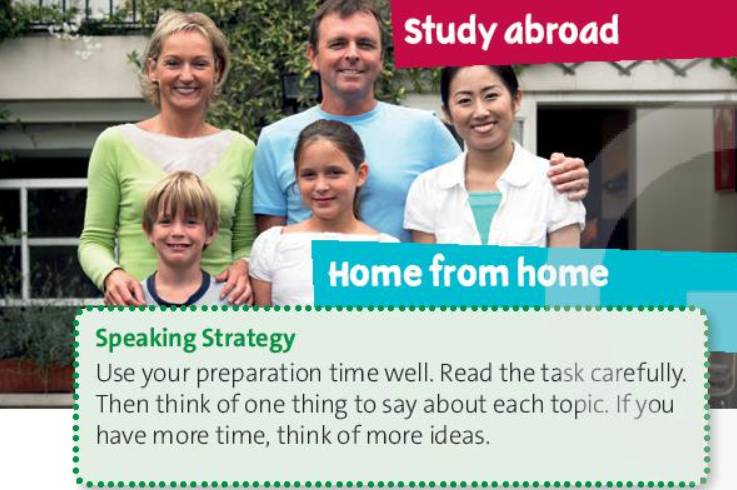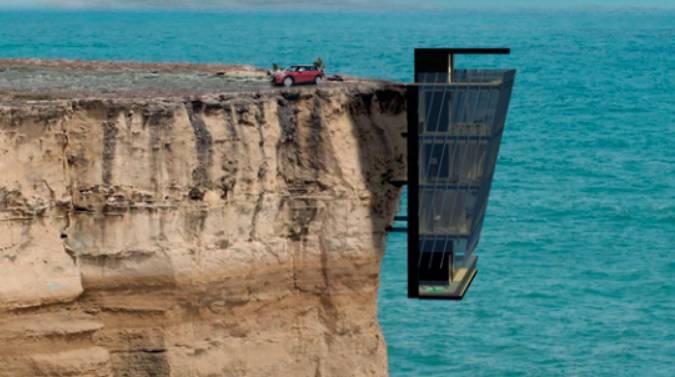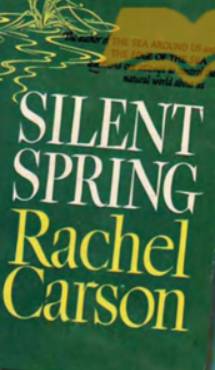Hãy nhập câu hỏi của bạn vào đây, nếu là tài khoản VIP, bạn sẽ được ưu tiên trả lời.

Tạm dịch:
Dave: Chào Lan. Bạn đã có một kỳ nghỉ tốt?
Lan: Vâng, nó rất tuyệt, cảm ơn.
Dave: Bạn đã làm gì?
Lan: Tôi đã đi nghỉ ở thành phố với gia đình tôi.
Dave: Ở nước ngoài?
Lan: Không, chúng tôi đã đi đến Đà Nẵng.
Dave: Tuyệt. Bạn đã có khoảng thời gian vui vẻ chứ?
Lan: Vâng, chúng tôi đã đến thăm Bà Nà Hill và Phố cổ Hội An. Chúng tôi đã mua rất nhiều quà lưu niệm.
Dave: Bạn đã đi thuyền đến Cù Lao Chàm chưa?
Lan: Không, thời tiết xấu. Kì nghỉ của bạn thế nào?
Dave: Không tệ. Nhưng tôi đã không làm gì nhiều. Chúng tôi đã không đi xa. Tôi đi chơi với bạn bè của tôi. Chúng tôi đã đến một lễ hội âm nhạc và chúng tôi đã đến công viên giải trí một vài lần.
Lan: Nghe vui đấy.
Dave: Vâng, không sao đâu. Chỉ tiếc là kỳ nghỉ không còn nữa!
Lời giải:
Lan had a more enjoyable day because she spent time with her family and visited many tourist attractions.
(Lan đã có một ngày thú vị hơn vì cô ấy đã dành thời gian cho gia đình và tham quan nhiều địa điểm du lịch.)

1. Don’t click on | 2. Enter | 3. delete | 4. don’t follow | 5. Log on |
Dialogue 1 (Đoạn hội thoại 1)
Don't click on that button just yet. Enter the discount code first.
(Khoan hẵng bấm vào nút đó. Hãy nhập mã giảm giá vào trước.)
Dialogue 2 (Đoạn hội thoại 1)
And then you should delete the email.
(Và sau đó bạn nên xoá email.)
And whatever you do, don't follow any links contained in the email.
(Và bất kể bạn làm gì, đừng theo bất kì đường dẫn nào trong email.)
Dialogue 3 (Đoạn hội thoại 3)
Log on to your email account. Once you've got it, you can reset your password.
(Đăng nhập vaò tài khoản của bạn. Một khi bạn có nó, bạn có thể đặt lại mật khẩu của mình.)

In my opinion the best thing about spending a year with a family abroad is that all of the members have the opportunity to learn and speak a new language and visit different places in another country. Moreover, the young generation can learn in a new educational environment which brings more job opportunities for the future. In contrast, the worst thing about spending a year with a family abroad is missing the place where we were born and grown up. We will find it is strange to eat different food as well as experience new cultures that we aren't used to.
Tạm dịch:
Theo tôi, điều tuyệt vời nhất khi dành một năm cùng gia đình ở nước ngoài là tất cả các thành viên đều có cơ hội học và nói một ngôn ngữ mới cũng như tham quan những địa điểm khác nhau ở một quốc gia khác. Hơn nữa, thế hệ trẻ được học tập trong một môi trường giáo dục mới, mang lại nhiều cơ hội việc làm cho tương lai. Ngược lại, điều tồi tệ nhất khi dành một năm với gia đình ở nước ngoài là nhớ nơi chúng ta sinh ra và lớn lên. Chúng ta sẽ thấy lạ lẫm khi ăn những món ăn khác nhau cũng như trải nghiệm những nền văn hóa mới mà chúng ta chưa quen.

a) countable nouns: document, gadget
(danh từ đếm được: tài liệu, tiện ích)
b) uncountable nouns: habit, health, information, money, music, software, website, homework
(danh từ không đếm được: thói quen, sức khỏe, thông tin, tiền bạc, âm nhạc, phần mềm, trang web, bài tập về nhà)

1. D | 2. C |
1 Be careful when you choose a leisure activity because some activities take up a lot of time or effort. Then they find that it doesn't interest them as much as they thought it would. Find out what an activity needs before. you begin, and you won't have wasted your time.
(Hãy cẩn thận khi bạn chọn một hoạt động giải trí vì một số hoạt động chiếm nhiều thời gian hoặc công sức. Sau đó, họ thấy rằng nó không khiến họ quan tâm nhiều như họ nghĩ. Tìm hiểu những gì một hoạt động cần trước. bạn bắt đầu, và bạn sẽ không lãng phí thời gian của mình.)
2 If you think you have hurt yourself while exercising, stop immediately. Too many people try to continue, despite the pain. As a result, they end up with worse injuries, so it takes them much longer to get better.
(Nếu bạn nghĩ rằng bạn đã làm tổn thương chính mình khi tập thể dục, hãy dừng lại ngay lập tức. Quá nhiều người cố gắng tiếp tục, bất chấp nỗi đau. Kết quả là họ bị thương nặng hơn, vì vậy họ phải mất nhiều thời gian hơn để hồi phục.)

Come see this unique and modern house built on a cliff overlooking the ocean. The house has a spacious interior with stunning glass and metal design that perfectly complements the natural rock formation. And the view is extremely spectacular, with unobstructed views of the endless ocean. You won't find another house quite like this one, so come and see it for yourself.
Tạm dịch:
Hãy đến xem ngôi nhà độc đáo và hiện đại này được xây dựng trên một vách đá nhìn ra biển. Ngôi nhà có nội thất rộng rãi với thiết kế bằng kính và kim loại tuyệt đẹp bổ sung hoàn hảo cho sự hình thành đá tự nhiên. Và góc nhìn thì rất ngoạn mục, với tầm nhìn không bị cản trở ra đại dương vô tận. Bạn sẽ không tìm thấy một ngôi nhà nào khác giống như ngôi nhà này, vì vậy hãy đến và tự mình xem nó.

![]()
LEARN THIS! The third conditional
a We form the third conditional with if + past perfect, would have + past participle.
If I had seen her, I would have offered her a lift.
b We use the third conditional to talk about imaginary situations and to say how things could have been different in the past.
If you hadn't gone by taxi, you 1 wouldn’t have arrived (not arrive) on time.
c We often use it to express regret or criticism.
If you 2 had left (leave) earlier, you 3 wouldn’t have been (not be) late!

It's possible that the green color on the cover represents nature or the environment, which is a central theme of the book. I can also see a river on the left of the book. I guess this book is about protecting the environment

[part 1]
1. Buses and trains need to reserve some special seats or areas for women with babies, the elderly and the disabled.
2. Those who do noisy jobs such as airport ground staff or construction workers for a long time are ly to have hearing impairment.
3. It is crucial for teenagers to paripate in charity work of any kind. That helps them learn how to care and share.
4. Both parents and teachers need to teach children to have a respectful attitude to the elderly.
5. Making a small donation to a charity helps young people be aware of the value of money.
6. To many students, working with a tutor is preferred to working with a peer.
7. Jane's mother always appreciates her attempt to fulfill her duties even when she was not successful.
8. Jaden was involved in planning an election campaign for the president of his country.
9. It is significant to integrate children with special needs into ordinary schools so that they are more accepted by their community.
10. Racial discrimination doesn't seem to be ended, even in mulultural countries America or Canada.
[part 2]
1. (C) was built/ was
A: A new house was built for homeless children.
B: Really? When was it built?
2. (B) visited/spoke
The Prime Minister visited our university. He spoke to students about the orientation for their future careers early today.
3. (A) has decided/ suffered
At the last meeting, the Student Union has decided to hold a craft and art exhibition to raise money for the kids who suffered from cancer.
IV. Find the mistakes
1. Newly-born infants should be screened for their hearing in order to receive early treatment if it is impaired.
2. The aircraft of Malaysia Airlines Flight 370, which disappeared on the 8th of March 2014, has not been recovered.
3. The findings of a study show that students have changed their attitude towards the poor after involving in some charitable work.
4. The persons with disabilities in Malaysia will have more to smile about because several local companies are now offering jobs to them.
5. More and more organizations have been recently found to have helped the poor and orphans in Vietnam.
6. It is believed that people are happier when they help others.





Work in pairs. Discuss these questions.
a. Have you ever done your laundry? If yes, how did you do it?
Yes, I have. I always wash my clothes by hands following these steps: put the clothes into the mixture of washing liquid and water and clean the dirty pieces, then remove the washing bubble with water, finally dry the clothes in a sunny place.
b. Below are some steps to do laundry. Put them in the correct order.
1 - B. Sort the clothes by colour
2 - D. Add the washing powder or liquid
3 - E. Load the washing machine and turn it on
4 - C. Remove the wet clothes from the washing machine and dry them
5 - A. Hang or fold, and store your own clothes
a: Yes, I have. I always wash my clothes by hands following these steps: put the clothes into the mixture of washing liquid and water and clean the dirty pieces, then remove the washing bubble with water, finally dry the clothes in a sunny place.
b: D-B-E-C-A